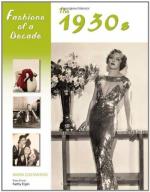|
This section contains 143 words (approx. 1 page at 300 words per page) |

|
Roosevelt proved far more flexible than Hoover in his philosophical approaches to the economic emergency. Roosevelt assembled a team of economists, scholars, and businessmen to help him sift through the various approaches to resolving the Depression. The nucleus of this so-called Brain Trust were three Columbia University professors: Raymond Moley, a progressive who believed in government regulation of business; Rexford Guy Tugwell, an economist and expert on agriculture; and Adolf A. Berle, a thirty-eight-year-old corporate lawyer (and registered Republican). Supplementing the work of these three was input from other figures soon to take places in the New Deal bureaucracy: former cavalry officer and businessman Hugh Johnson, agricultural businessman Henry Wallace, industrialist William H. Woodin, Chicago lawyer Harold L. Ickes, social worker Frances Perkins, Arizona politician Lewis Douglas, social worker Harry Hopkins, and corporation lawyer Jerome Frank.
|
This section contains 143 words (approx. 1 page at 300 words per page) |

|




